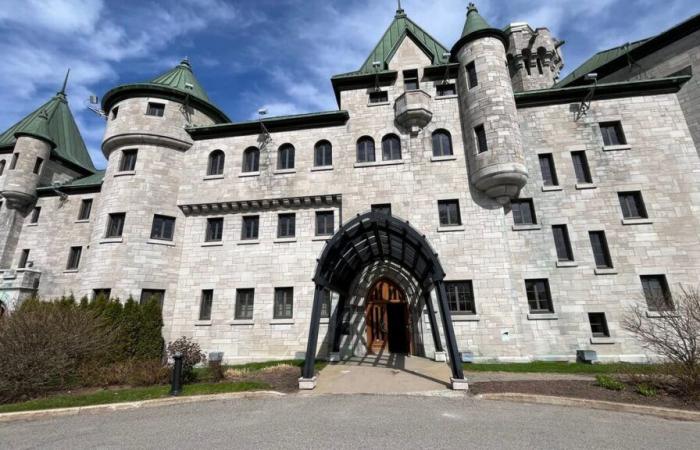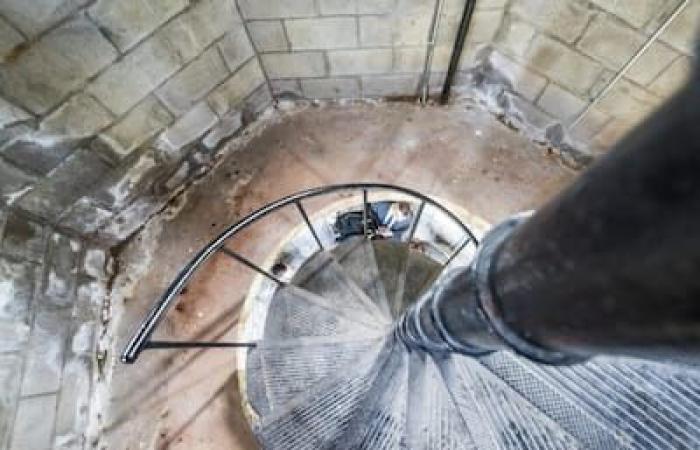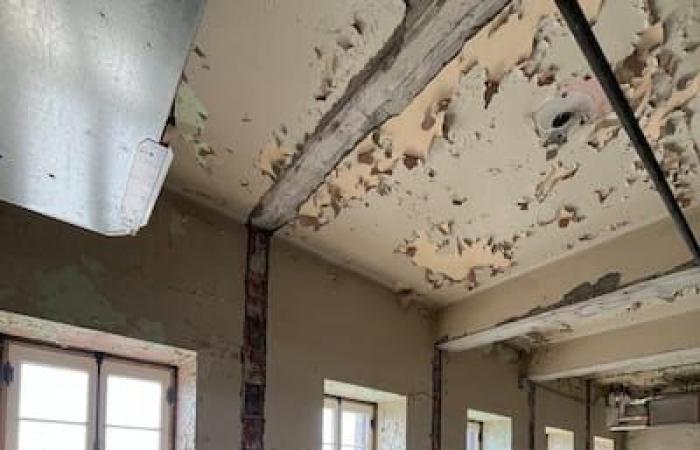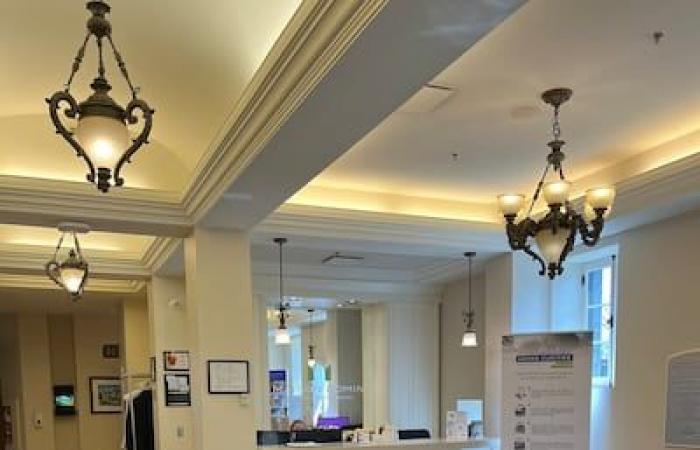The Gomin house, which sheltered a prison for women for around sixty years, has become a heritage building and a “landmark” in Quebec City. However, it remains unknown to the public and its owner wishes to make this mysterious building better known which is full of history.
Built on René-Lévesque boulevard between 1929 and 1931, the Gomin house was at that time on the outskirts of Quebec City, the limit of which was the Saint-Sacrement district. It is in a way a legacy of the economic crisis of 1929.
“There was a desire to give work to the unemployed and also to create a prison for women. This is what will lead the government to build this prison, “said Alex Tremblay Lamarche, historian and managing director of the cultural pole of the Augustines monastery.

Alex Tremblay Lamarche, historian and managing director of the cultural pole of the Augustines monastery. Photo Catherine Bouchard
The sector was, at this time, an agricultural village which provided foodstuffs in Quebec.
Over time, the expansion of the city has caught up with the building, whose vocation of origin, that is to say the detention of women, ended in 1992. Several ideas were brought later to occupy it: a youth hostel, a museum, a refuge for people with AIDS and even a village in Santa Claus. But catering costs were too high.
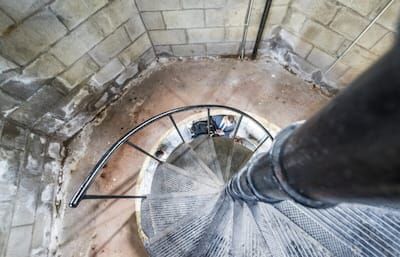
The spiral staircase which leads outside the Tourrelle of the Gomin house. The festive
Relive with funeral industry
It was a little later, in 2006, that the funerary house project arrived with Lépine Cloutier/Athos, whose wish was to make it a new genre funeral center and to extend its activities beyond the funeral domain. Its reconstruction ended in 2008.
“The Athos group engineering has been to keep a visual breakthrough on the building, which continues to exist in the city as a visual landmark,” said the historian. It is indeed clearly visible and stands out, from Boulevard René-Lévesque and Avenue Painchaud.
The Athos group now wishes to make this witness to our history better known. By visiting it, it is still possible to go to the guardian tower and see the vestiges of the cells.

The vestiges of cells testify to the division of these, as we can see on the walls. Photo Catherine Bouchard
Nevertheless, today, the impression when you are there is not that of being in prison.
“It feels good,” said Sylvain Trottier, president of the Athos group.
With great brightness and a warm decor, the interior of the Gomin house no longer looks like a detention center.
“Many people in Quebec today, even in 2025, do not know what exactly is done and the vocation of the building,” continues Mr. Trottier.

Sylvain Trottier, president of the Athos group. The festive
Beyond the funeral services, the Athos group imagines a multitude of vocations for the Gomin house. The expression “celebration of life” returns several times, we imagine various marriages and rallies.
The event has its place, assures the company.
“We have a lot of democratic over time,” said Mr. Trottier. We seek to renew the accessibility of the Gomin house, but in other events. ”

The main entrance, with a wall over a waterfall. Photo Catherine Bouchard

The welcome from the Gomin house is lit, calm and warm. Photo Catherine Bouchard
Do you have any information to communicate to us about this story?
Write us to the address or call us directly at 1 800-63SCOOP.

